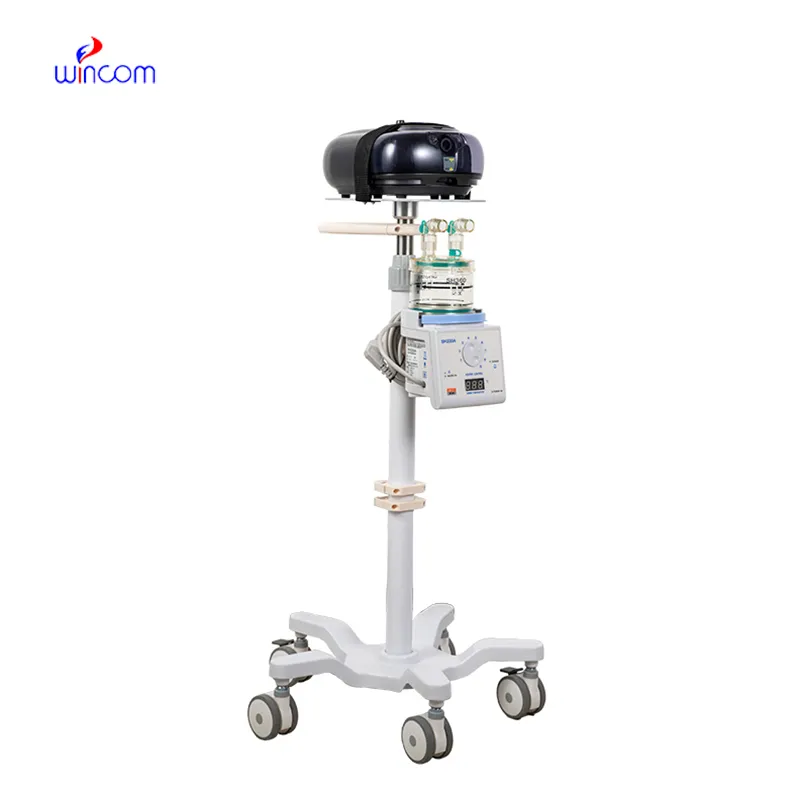
The helium in mri machines takes advantage of the use of high-speed arrays of coils and gradient amplifiers to provide higher spatial resolution. The helium in mri machines facilitates different diagnostic procedures such as brain mapping, musculoskeletal examinations, and vascular imaging. The helium in mri machines offers smooth operation through automated calibration and intrinsic safety monitoring.

The helium in mri machines is used in vascular imaging for the purpose of mapping blood flow and identification of blockage or aneurysm. It allows veins and arteries to be visualized without the use of contrast dyes in the majority of cases. The helium in mri machines allows doctors to accurately plan interventional or surgical intervention.

Tomorrow's helium in mri machines will consist of advanced AI diagnostics that scan for abnormalities in real time. Wheel-equipped MRI units will soon be commonplace, bringing access to rural or emergency settings. The helium in mri machines will play a key role in predictive medicine by reading changes in physiology before symptoms manifest.

The helium in mri machines also calls for monitoring temperature and humidity in the scan room to ascertain stable operation. Maintenance staff ought to regularly evaluate magnet pressure, gradient coils, and cooling systems. Maintaining proper records of maintenance procedures guarantees the long-term reliability of the helium in mri machines.
The helium in mri machines combines magnetic and radiofrequency technologies to produce accurate and high-resolution images of the human body. The helium in mri machines is widely used to diagnose vascular disease, musculoskeletal injuries, and neurological disorders. The helium in mri machines enhances clinical decision-making because it produces detailed information about the internal processes of the body.
Q: What is an MRI machine used for? A: An MRI machine is used to create detailed images of the body’s internal structures, helping doctors diagnose brain, spine, joint, and soft tissue conditions without using radiation. Q: How does an MRI machine work? A: The MRI machine uses strong magnetic fields and radio waves to align hydrogen atoms in the body and detect signals that form high-resolution images of organs and tissues. Q: Is an MRI scan safe for all patients? A: MRI scans are generally safe, but patients with metal implants, pacemakers, or certain medical devices must be evaluated before scanning due to magnetic interference. Q: How long does a typical MRI scan take? A: Most MRI scans take between 20 to 60 minutes, depending on the area being examined and the specific diagnostic protocol. Q: What makes MRI different from X-ray or CT imaging? A: Unlike X-ray or CT, an MRI machine uses magnetic resonance instead of radiation, making it particularly effective for imaging soft tissues and the nervous system.
We’ve been using this mri machine for several months, and the image clarity is excellent. It’s reliable and easy for our team to operate.
This ultrasound scanner has truly improved our workflow. The image resolution and portability make it a great addition to our clinic.
To protect the privacy of our buyers, only public service email domains like Gmail, Yahoo, and MSN will be displayed. Additionally, only a limited portion of the inquiry content will be shown.
We’re currently sourcing an ultrasound scanner for hospital use. Please send product specification...
Hello, I’m interested in your centrifuge models for laboratory use. Could you please send me more ...
E-mail: [email protected]
Tel: +86-731-84176622
+86-731-84136655
Address: Rm.1507,Xinsancheng Plaza. No.58, Renmin Road(E),Changsha,Hunan,China